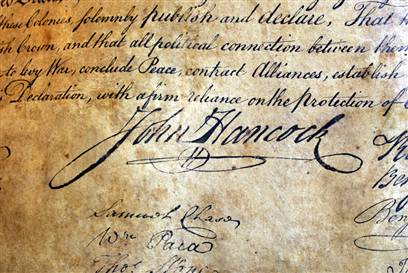Imagine that you’re a researcher who wants to investigate the effects of narcissism. The standard for evaluating narcissism is a questionnaire called the Narcissistic Personal Inventory (NIP), in which people are asked which of a series of phrases best describes them. Question 5, for example, asks whether you identify more with the answer “The thought of ruling the world frightens me” or “If I ruled the world it would be a better place.”
The NIP stresses that there are no right or wrong answers. And while many of the traits it measures are usually considered undesirable (exploitiveness, vanity), others are not (authority, self-sufficiency). But the test’s motives are still very transparent, which would make most potential participants wary of taking it.
This was the dilemma faced by several academics researching the performance of companies run by narcissistic CEOs. Their solution? Measure the size of the CEOs’ signatures on documents they filed publicly with the Securities and Exchange Commission. The bigger the signature, the more narcissistic the CEO.
It’s a clever idea, but are there really no vain, self-centered CEOs writing their signature in small print? The researchers point to past studies that link large signatures with high self-esteem and status.
In 1973, psychology professors showed that “signature size [is] significantly related to high self-esteem induced in an experimental situation, imagined status in a role-playing situation, the ascribed status of male or female, and tenured or nontenured status in a university setting.” The correlation between the size of people’s John Hancock and high self-regard has been reproduced by other academics since then.
The recent study, “Narcissism is a Bad Sign: CEO Signature Size, Investment, and Performance,” concluded that companies led by narcissistic CEOs tend to overinvest, achieve lower sales results, and file fewer patents. While it may seem unnecessary to write a paper pointing out that hiring narcissistic CEOs is a bad idea, the authors do point out that their findings contradict past research that suggests that overconfident, egotistical CEOs are superior innovators. (Think Steve Jobs.)
A devil’s advocate would point out that the studies on signature size find that it is correlated with high self-esteem and dominant personalities, so it is a bit of a leap to use it as a proxy for narcissism. And that correlation is not causation.
But that won’t keep us from analyzing our friends’ signatures with this framework as a party trick.
This post was written by Alex Mayyasi. Follow him on Twitter here or Google Plus. To get occasional notifications when we write blog posts, sign up for our email list.




